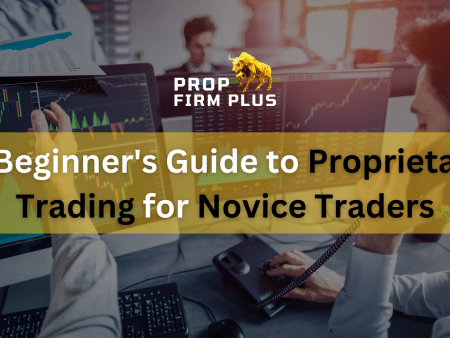Futures are an effective trading tool that may be used by traders of all stripes to manage risks related to production, while they were initially developed to assist commodity producers in hedging their risks. Despite this, futures are extremely leveraged, requiring only a small portion of the total value of bets to be posted as margin. As a result, compared to the capital needed to open and maintain a position, futures trading can result in significant gains or losses. It is therefore essential to comprehend the possible risks. To help you choose which futures trading platforms and brokers best suit your trading requirements, we have examined the top options.

Interactive Brokers: BEST FOR PROFESSIONAL FUTURES TRADERS
Brief Outline
Interactive Brokers, founded in 1978, is a leading global trading platform that caters to the largest international traders. It offers sophisticated trading tools, including back-testing trading ideas, options analysis tools, and a wide array of order methods. IBKR also allows traders to develop their own trading algorithms using various indicators. It also offers excellent order execution, including routing equity orders. IBKR is designed for big traders, offering volume discounts and higher margin requirements than other brokers.
This acts as a risk management tool, ensuring you can handle a 1% to 2% swing in the underlying stock price. It is also another clear signal that IBKR is meant for larger professional traders.
Main Features
- Account Minimum: $0.
- Commission: 1 ranges from $0.25 to $2.50 ($5 for cryptocurrency futures) per contract; IBKR Lite users pay a fixed charge, while IBKR Pro clients pay according to a tiered scale based on volume.
- Customers of IBKR Lite pay $0.85 per contract for regular futures. Every mini contract is worth $0.25. Bitcoin futures range from $0.10 to $5 per contract. The cost of an E-mini futures contract is $0.50.
- Customers of IBKR Pro pay between $0.85 and $0.25 per contract, depending on volume. $0.25 to $0.10 per contract for small contracts. Bitcoin futures range from $0.10 to $5 per contract. Contracts for E-mini Futures range from $0.50 to $0.05. Customers of IBKR Pro additionally have to pay an overnight position charge.
- $50 is the minimum margin required for intraday positions.
- There are applicable regular exchange and regulatory costs.
Pros
- Most markets are available on a single platform.
- Backtesting of strategies.
- Complex and automated trading strategies.
- Low commissions for high-volume traders.
Cons
- Can be intimidating to less experienced traders.
Why We Recommend It
Interactive Brokers (IBKR) is not only the best broker for experienced futures traders, but it’s also the best option for sophisticated, professional, and foreign traders. This is due to the fact that IBKR provides more trading markets than any other broker on a single platform. Furthermore, of other online brokers, IBKR has some of the greatest trading technology.
NinjaTrader: BEST FOR DEDICATED FUTURES TRADERS
Brief Outline
NinjaTrader, established in 2003, offers cloud-based, mobile, and web platforms for self-directed futures traders. It offers customizable charting, real-time analysis, and supports trading directly from charts. The platform offers a $50 intraday margin on equity index E-mini futures and $500 for standard futures contracts. Its low intraday margins make it an attractive choice for dedicated futures traders. While it does not support equity or options trading on equities or futures, it can be traded via other brokers’ APIs. NinjaTrader also provides 24-hour support during the trading week.
Main Features
- Minimum Account Opening Deposit: $0.
- Minimum Trading Margin: $50.
- Commission: Option 1-Free: There is no monthly cost, and side charges are $0.35 for micro futures contracts and $1.29 for regular contracts per side.The second option is a monthly fee of $99, with $0.25 and $0.99 per side commission for microcontracts and standard contracts, respectively.
- Choice 3-Living: $1,499 upfront payment plus $0.09 per side commission for microcontracts and $0.59 for standard contracts per side.
- Exchange, clearing, and National Futures Association (NFA) fees are applicable to all plans.
Pros
- Very low intraday commissions.
- Integrated desktop, web, and mobile platforms.
- Excellent charting.
- 24-hour support during the trading week.
- Simulation allows for no-risk trading practice.
Cons
- No options or equity trading (with a caveat).
- Market data purchase is required.
Why We Recommend It
Because NinjaTrader has low margin rates, a variety of affordable pricing options, and robust desktop, online, and mobile interfaces that facilitate direct trading from customisable charts, we have determined that it is the finest platform for committed futures traders.
E*TRADE: BEST FOR FUTURES EDUCATION
Brief Outline
Morgan Stanley acquired E*TRADE, a pioneering online broker established in 1982. The company supports futures trading and offers a robust platform for both new and experienced traders. E*TRADE’s platform supports multiple U.S. asset classes, offering a solid futures trading experience. The platform offers desktop, web, and mobile platforms, with commission rates higher than some other futures brokers. E*TRADE’s futures page provides information on markets, commissions, and articles on diversification, risk management, and expiration and settlement.
Main Features
- Account Minimum: $0.
- Exchange, clearing, and NFA fees additionally apply.
- Commission: $1.50 per contract, per side (for cryptocurrency futures, $2.50 per contract, each side).
Pros
- Support for multiple U.S. asset classes.
- Easy-to-use platforms.
- Excellent educational materials and content.
- Demo account for paper trading.
- CME Group and CFE data free for non-professionals.
Cons
- No access to international exchanges.
- Higher margin rates for IRA accounts.
Why We Recommend It
Since the platform provides a wealth of information and training tools to help educate and equip investors to trade and invest for themselves, including excellent futures-specific content, we selected E*TRADE as the top broker for futures education.
TradeStation: BEST FOR DESKTOP FUTURES TRADING
Brief Outline
TradeStation, a desktop platform designed for advanced traders, offers excellent charting, analytics, and trade management. It offers competitive commission rates of $1.50 per side for futures trading and lower margin rates for intraday traders. TradeStation supports trading in multiple asset classes, including stocks, ETFs, cryptocurrencies, options, and futures. Despite its user-friendly interface, TradeStation’s robust backtesting and data availability make it the best desktop platform for futures trading.
Main Features
- Account minimum: $0.
- Commission: $1.50 per trade per side, plus NFA, exchange, and overnight position fees; for micro futures, the fee is only $0.50 per trade.
Pros
- Fast platform with good execution.
- Support for multiple asset classes.
- Simulated trading.
- Advanced order types and trading automation.
- Free data for non-market professionals.
Cons
- Steep learning curve.
- Weak customer service.
Why We Recommend It
For desktop futures traders, TradeStation is the best option available because of its strong platform, which has competitive margin rates and great features for order entry, position management, and charting.
Final Verdict
Although there are a lot of options for trading futures, your trading style will determine which platform works best for you. NinjaTrader provides very low commissions (particularly for intraday trading), a stable platform with strong execution, and the option to connect to other trading platforms via third-party apps and APIs for individuals who simply trade futures. Given its extensive market coverage and volume discounts, Interactive Brokers is the preferred option for experienced and high-volume traders.
Platforms like E*TRADE are a wonderful option for investors who trade equities primarily and want to trade or hedge using futures. Both offer outstanding educational content and excellent all-around platforms. Lastly, traders who trade futures with a reasonable amount of activity and who also trade other asset classes such as stocks, ETFs, and options and who desire advanced order options and the ability to manage order routing for equities would find TradeStation appealing.










